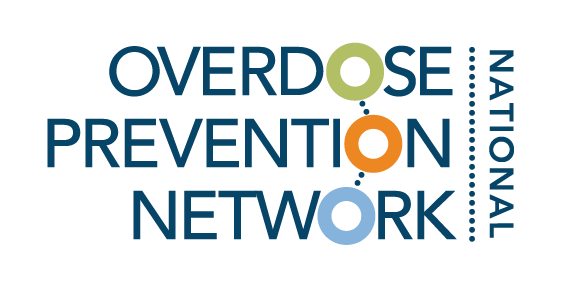Elevating the Essential Role of Youth Outreach and Engagement in Treating Substance Use Disorders
“From the time someone [completes] an intake [assessment] at Streetwork, we convey that this program cares about youth who use drugs and is going to offer nonjudgmental harm reduction support.” says Graciela Razo, Harm Reduction Coordinator at Safe Horizon’s Streetwork Project in the Lower East Side, New York City.
Graciela received her bachelor’s degree from the University of North Texas in journalism and political science. From advocating for farm worker justice in her hometown of El Paso, Texas to beginning her career at the Streetwork Project in 2013, Graciela has always been passionate about social justice projects.
When Graciela moved to New York City and joined the Streetwork Project, she knew she wanted to invest her time and energy supporting young people. Over the years, Graciela has held many roles with Streetwork. She started her work in an outreach unit, supporting youth who were involved in sex work. She also led the drop-in center as a Youth Advocate and a Case Manager before stepping into her current role as the Harm Reduction Coordinator. In this role, she specializes in promoting anti-stigma and inclusivity through educating clients on safer drug use, overdose prevention and reversal, and safety planning with homeless youth. Under Graciela’s leadership, the Streetwork Project has grown to offer safer drug use kits, host harm reduction groups, and provide one-on-one counseling. Graciela’s focus is to offer unconditional love and support to homeless youth and to advocate for safer consumption spaces with expanded Naloxone access.
“From the time someone [completes] an intake [assessment] at Streetwork, we convey that this program cares about youth who use drugs and is going to offer nonjudgmental harm reduction support.”
Graciela was trained by doing, conducting street outreach in New York City. She says, “I am trained by Streetwork, and my entire career is Streetwork. I have this very particular lens on how I do the work and how we're most able to be effective, with reaching young people to talk about overdose, to talk about drugs, and whatever other support they need.”
The Streetwork Project is one of many different services that is provided by Safe Horizon. Established in 1978, Safe Horizon is the largest non-profit victim services agency in the United States. They aim to provide support, prevent violence, and promote justice for victims, families, and communities. The Streetwork Project was started in 1984 as a small outreach program at the beginning of the HIV/AIDS and crack epidemics to ensure that homeless youths had access to support services. Streetwork has open and honest conversations with youth, ages 18-25, about substance use in order to address and reduce stigma. In an effort to normalize the conversation around substance use, staff “make sure all harm reduction supplies are visible throughout the space to make them more accessible and available like any other supply we offer,” says Graciela. “People who use drugs are welcome here. Drugs are a part of life. They're not good, they're not bad, they just are.”
Today, Graciela leads Streetwork in operating a drop-in center where youth can find multiple services such as food, showers, counseling, harm reduction supplies, and respite. When someone comes to the center, the first step is making sure that they have something to eat or drink. Graciela says, “as a homeless young person, if they haven't eaten in days there's no way they can sit through an intake and talk about their needs when their stomach is grumbling, and we also recognize food as a source of comfort and familiarity and love.”
Graciela says that building trust with the youth who come to the center is critical to building a successful relationship. The team fosters trust through casual and safe interactions such as serving food, providing access to a shower, or painting nails. Graciela points out, “those smaller counseling interactions really build trust with young people, who often are distrustful of service providers.” Each member of the team is responsible for ensuring that case managers know the needs of their clients, including asking about their injection sites and other physical concerns. When someone comes to Graciela for services such as syringe exchange, she will ask about the health of their body including their injection sites. Graciela explains, “That is a form of care that not a lot of young people receive and if we're caring about…how their veins are doing, that is really signifying that this is a safe place to talk about drug use.”
One of Graciela’s favorite parts of her job is leading a team of peers comprised of current and/or former clients to do street outreach. Streetwork puts together various kits based on current public health guidance and information received from clients about how drug trends are changing. Not only do they have syringes, but they also provide safer snorting and smoking kits. Graciela, along with the peer team, put together zines to disseminate information quickly. These zines include information on all of their safer substance use kits, overdose prevention tips, and Good Samaritan laws.
Graciela is most passionate about working with street homeless and at-risk youth, getting Narcan kits into as many hands as possible, and advocating for safer consumption spaces as a harm reduction tactic to prevent fatal overdoses. Graciela’s motivation to continue this work are the young people at the drop-in. She explains, “I can see the impact that our program has on their substance use choices, as we are always offering unconditional support and love whether they continue using their drug of choice, stop all together, or when they are trying new substances. They know that harm reduction means nonjudgmental counseling that gives them information and support no matter what. I see that they carry that support and information to their peers by bringing friends in for intakes or bringing them supplies.”

